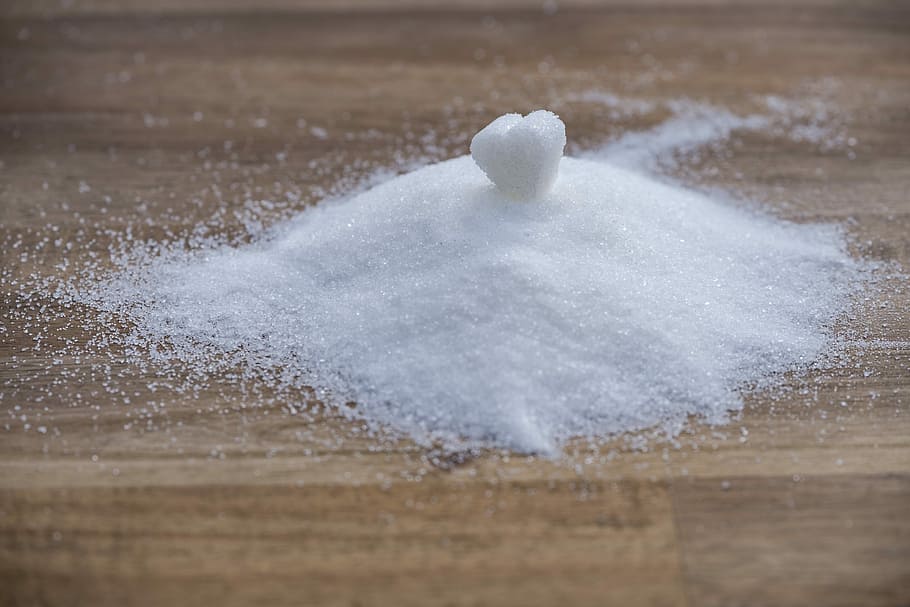In an era where sugar is both a staple and a scapegoat in our diets, understanding its impact on our health has never been more critical. The article titled “How Long Does Sugar Stay In Your System?” delves deep into the science behind sugar’s journey through the body, unraveling the complexities of how it affects our well-being. Authored by leading nutrition experts, this comprehensive guide illuminates the nuanced ways in which sugar interacts with our physiological systems, offering invaluable insights for anyone looking to make informed dietary choices.
From the initial sweet satisfaction to the final metabolic processes, this article meticulously traces sugar’s path, highlighting key factors that influence its duration in our system. Whether you’re a health enthusiast, someone managing dietary restrictions, or simply curious about sugar’s effects, this article promises to enrich your understanding and empower you with knowledge to make healthier choices.
Beyond mere facts, “How Long Does Sugar Stay In Your System?” challenges common misconceptions, provides practical advice on moderating sugar intake, and explores the latest research findings in the field of nutrition. By bridging the gap between complex scientific concepts and everyday health concerns, it not only educates but also inspires a proactive approach to dietary habits. Get ready to embark on a fascinating journey into the world of sugar, where science meets wellness in a compelling narrative that will keep you engaged from start to finish.
The Biochemical Process of Sugar in the Body

Glucose is essential for providing energy for the body’s cellular processes. Here is how the body converts and regulates glucose levels:
- Absorption of Glucose: Carbohydrates from consumed foods are broken down into simple sugars. Glucose is absorbed from the digestive tract into the bloodstream.
- Conversion to Blood Sugar: As glucose enters the bloodstream, it causes blood sugar levels to rise. This triggers the release of insulin from the beta cells in the pancreas.
- Insulin and Glucagon: Insulin enables glucose to move from the blood into the body’s cells. It stimulates cells to absorb glucose, storing excess as glycogen in the liver and muscles. Glucagon has the opposite effect of insulin. It mobilizes stored glycogen and releases it to increase blood sugar when levels drop too low.
Insulin and glucagon work together to maintain equilibrium and keep blood sugar levels stable.
Healthy Blood Sugar Levels and Glycemic Index
There are target ranges for optimal fasting and post-meal blood sugar levels:
- Fasting Blood Sugar: 70-100 mg/dL
- 2-Hour Postprandial: <140 mg/dL
The glycemic index (GI) measures how quickly foods raise blood sugar. Low GI foods (55 or less) are absorbed slower, causing a gradual rise. High GI foods (70 or more) lead to spikes. Choosing lower GI foods helps control blood sugar.
Dietary Impact on Blood Sugar
The carbohydrates, proteins, fats, and fibers found naturally in whole foods affect blood sugar differently than added or processed sugars:
- Carbohydrates: Broken down into glucose, directly impacts blood sugar. Whole grains raise blood sugar slowly; refined grains in excess can cause unstable levels.
- Protein: Helps blunt the glycemic response of carbohydrate-rich meals, slowing glucose absorption.
- Fats: Require longer digestion, slowing gastric emptying and glucose absorption from carbs. Healthy fats protect cells and modulate insulin sensitivity.
- Fibers: Soluble fibers form gels, slowing digestion. Insoluble fibers don’t directly affect blood sugar but can indirectly lower it via weight management.
Overall, whole foods with a mix of macronutrients create a slower, smaller rise in blood sugar than processed junk foods.
More watching video: What Sugar ACTUALLY Does to the Body
How Long Does Sugar Stay In Your System?
Sugar can stay in your system for around three hours for a healthy person, with some residual sugar remaining in the body. However, for individuals with diabetes, the process is different. In diabetic individuals, the level of sugar in the body can remain high even without interventions. It takes around 30 minutes for insulin to stabilize in a diabetic person’s body, and its effects can last up to six hours. To flush out sugar from the body, drinking plenty of water to promote urination is recommended, along with increasing protein and fat intake, consuming fruits and complex carbs, reducing stress, and ensuring proper sleep patterns.
Psychological and Physical Effects of Sugar
Beyond direct impacts on blood sugar, sugar consumption affects:
Psychological Effects
- Depression and anxiety
- Addiction-like cravings
- Poor memory and cognition
- Increased aggression and hyperactivity
- Mood instability
Physical Effects
- Obesity
- Fatty liver disease
- High blood pressure
- High triglycerides
- Insulin resistance and type 2 diabetes
- Increased inflammation
- Accelerated aging
Excess sugar intake stresses the body both mentally and physically.
Strategies for Managing Sugar Intake
To stabilize blood sugar levels, it helps to:
- Limit added sugars to <10% of daily calories
- Avoid sugary beverages like soda
- Read labels and watch for hidden sugars
- Choose whole foods over processed ones
- Eat plenty of protein, fat, and fiber at meals
- Exercise regularly to increase insulin sensitivity
- Aim for consistent carb intake over time
A balanced, low-sugar diet supports healthy blood sugar regulation.
Sugar Detox: Methods and Benefits
Going on a structured sugar detox can reset your taste buds, cravings, and blood sugar levels. Here are steps for a sugar detox:
- Cut out added sugars: Avoid table sugar, syrups, and artificial sweeteners. Rely on whole foods.
- Reduce overall carbs: Stick to <150 g of carbs daily, emphasizing complex carbs.
- Load up on proteins and healthy fats: Grass-fed meats, nuts, seeds, avocado.
- Eat plenty of low-sugar produce: Greens, berries, lemons, limes.
- Stay hydrated: Drink water, herbal tea, mineral water.
- Manage cravings: Distract yourself, drink tea, go for a walk.
- Support detoxification: Take supplements like magnesium, milk thistle, and dandelion root.
Detoxing from sugar can help regulate appetite, reduce inflammation, and reinstate insulin sensitivity.
Special Considerations
For Healthy Individuals: Aim to maintain stable blood sugar levels through balanced nutrition and exercise. Occasional sugar indulgences in moderation are unlikely to be harmful.
For Diabetics: It’s especially important to monitor carb intake. Work with a doctor to determine optimal sugar and carbohydrate intake. Take medication as prescribed to help moderate blood sugar. Check blood sugar regularly.
Sugar Substitutes and Their Health Implications
Sugar substitutes provide sweetness without glucose or calories:
- Artificial sweeteners: Aspartame, saccharin. Some concerns about increasing sugar cravings.
- Stevia: Extracted from stevia leaf. Natural low-calorie sweetener. GRAS certified.
- Monk fruit: Extracted from monk fruit. Natural, zero-calorie. GRAS certified.
- Erythritol: Sugar alcohol derived from corn. Natural, low-calorie. Well-tolerated in small doses.
Consuming sugar substitutes in moderation appears safe for most people. But limiting overall sweetness intake is advised.
Regulatory and Public Health Perspectives

- Dietary guidelines: Recommend limiting added sugars to <10% of calories. Focus on whole foods over processed items with added sugar.
- Taxation: Some localities tax sodas and other sugary drinks to discourage consumption and fund health programs. Results have been mixed.
- Warning labels: There is interest in implementing warning labels on foods high in added sugars, similar to those on tobacco products. But policy specifics are still in flux.
- Industry: Recent commitments from food/beverage companies to reduce sugar in products. But critics argue measures don’t go far enough.
Conclusion
Blood sugar regulation is vital, but impacted by diet. Limiting added sugar, balancing macronutrients, and choosing low-GI foods helps stabilize levels. Periodic sugar detoxes can reset metabolism. While occasional sugary treats are fine for most healthy people, reducing intake provides significant health benefits. With mindful dietary changes, maintaining healthy blood sugar regulation is achievable.

